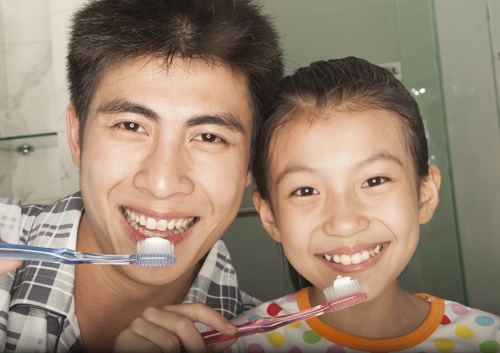Is your child a mouth breather?
July 24th, 2024

Have you ever watched to see if your child is breathing through his or her mouth? Breathing through the mouth instead of the nose may lead to trouble for youngsters. Kids who typically breathe through their mouth—most often children who suffer from allergies—experience problems getting enough oxygen into their blood, a condition that affects their weight, size, sleep, and even their performance in the classroom and daily life.
Mouth breathing as a child can also lead to sleep apnea, behavior and learning problems, delayed speech, dental and facial abnormalities, and even breathing problems as your child grows. There are a multitude of reasons for an individual to mouth breathe, such as enlarged tonsils, adenoids, and deviated nasal septum, but the cause is usually allergies.
As bad as the condition sounds, we want you to know mouth breathing is a treatable condition. Doing so, though, requires early diagnosis and treatment. Since our team at Bay Smile Docs sees our patients every six months, we may be in a position to identify the symptoms of mouth breathing.
If you suspect your child is a chronic mouth breather, please give us a call at our convenient Lynn Haven or Panama City Beach office to schedule an appointment with Dr. Clay Gangwisch, Dr. Mike Grandy, Dr. Daniel Melzer, and Dr. John Miller.


